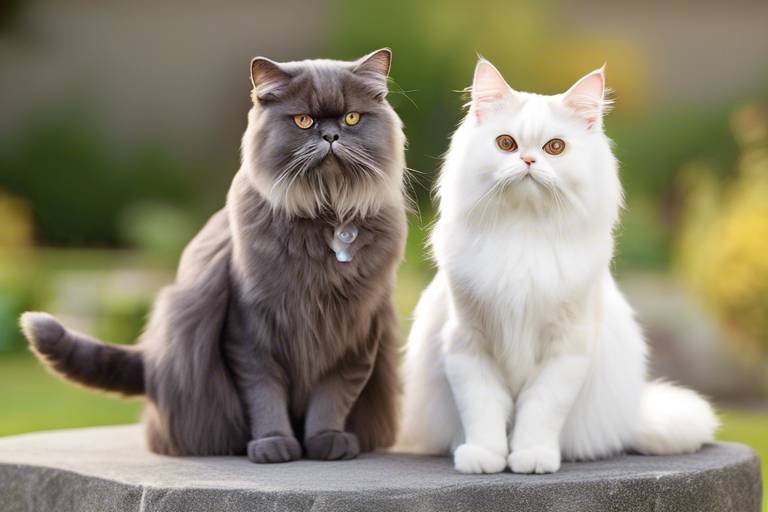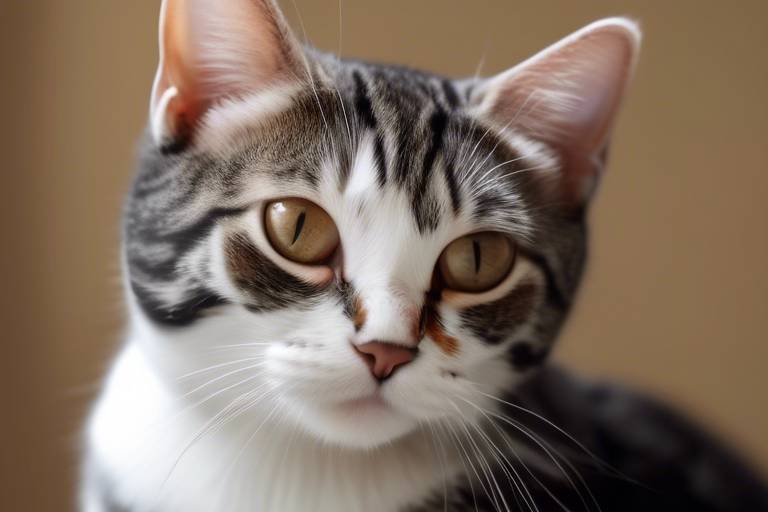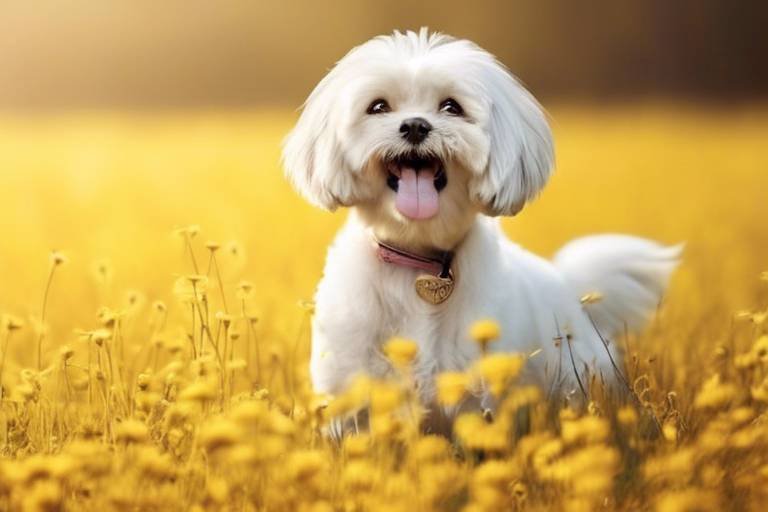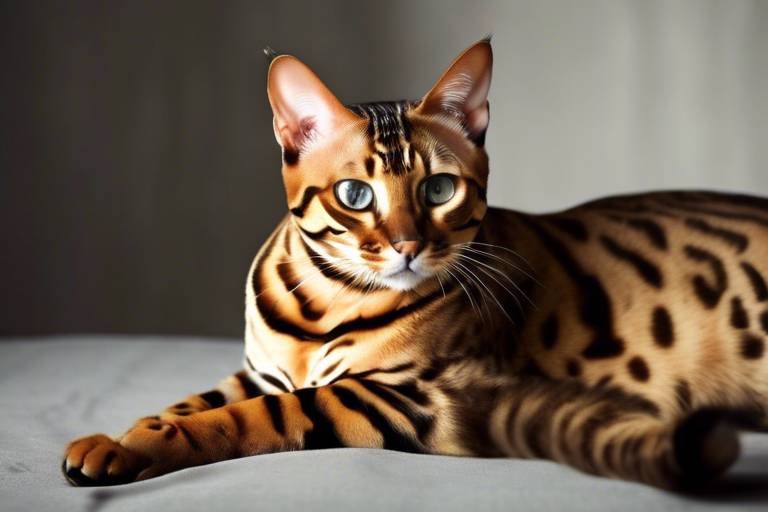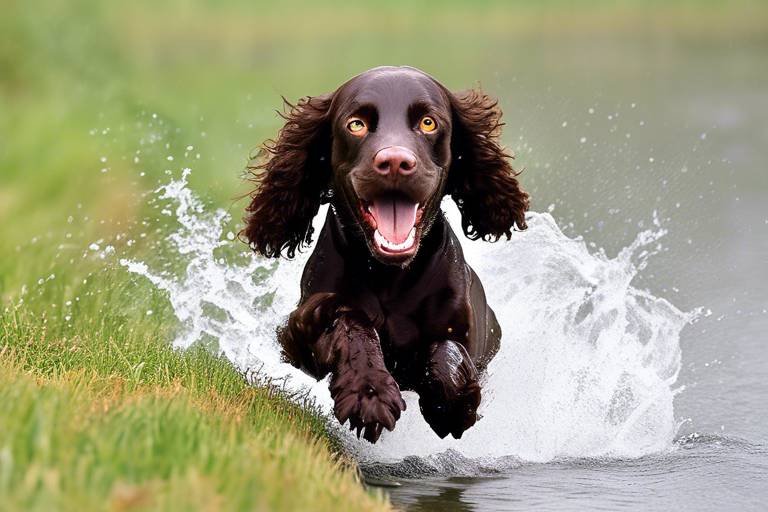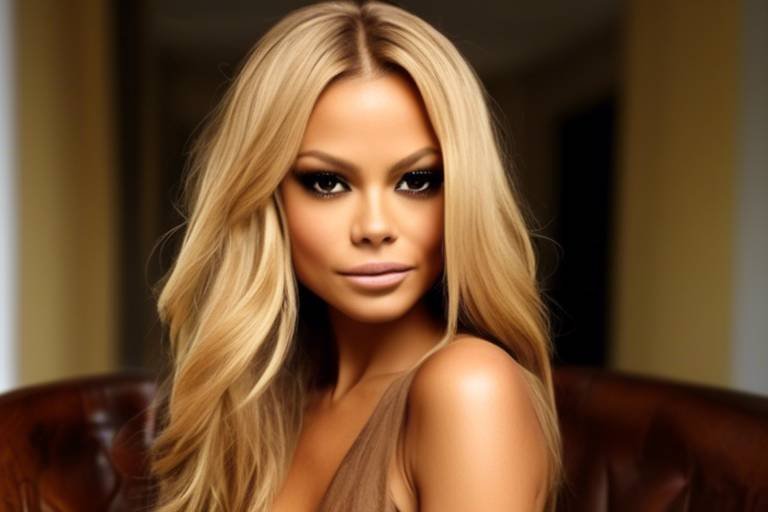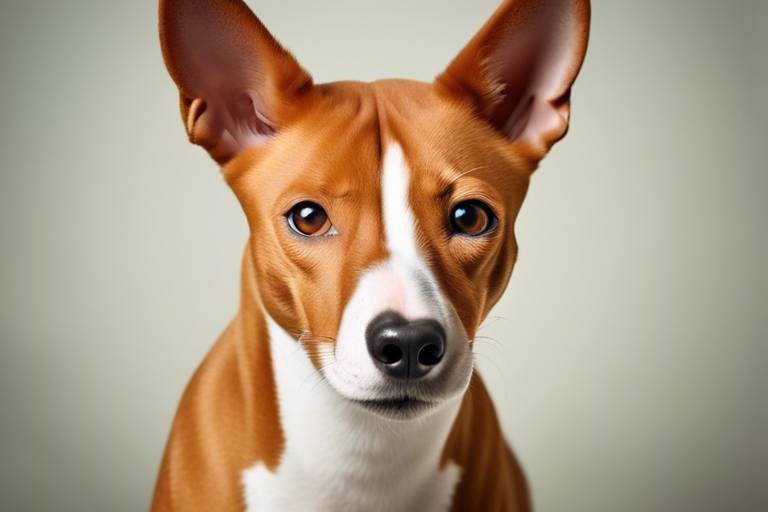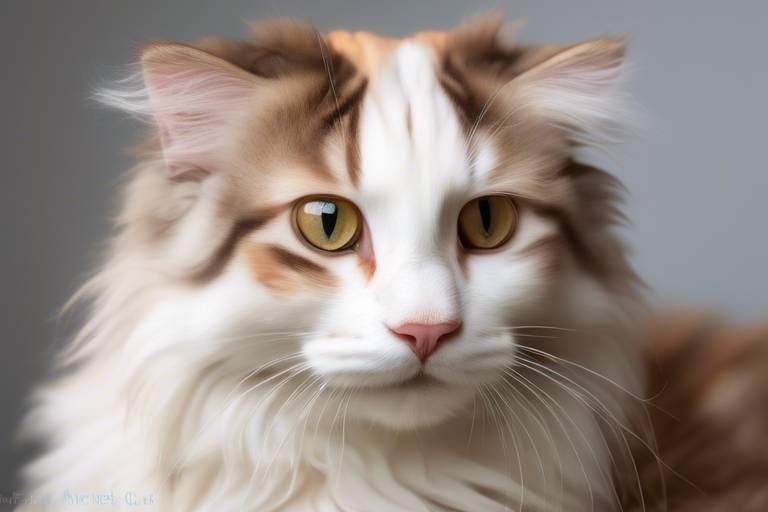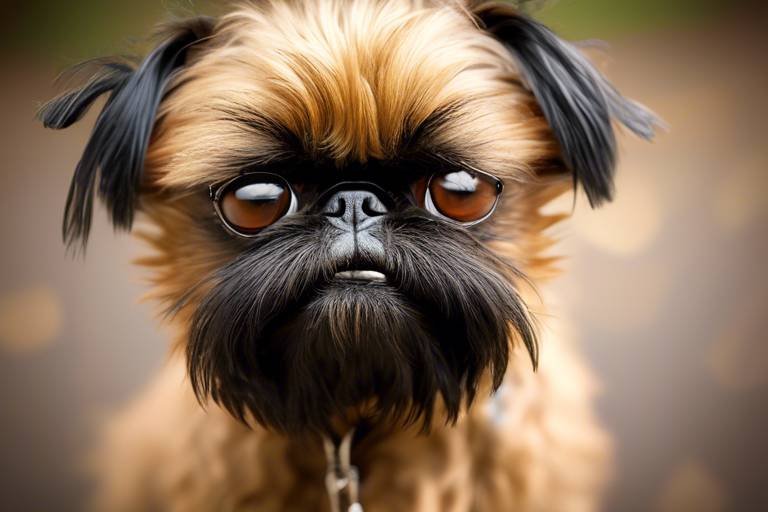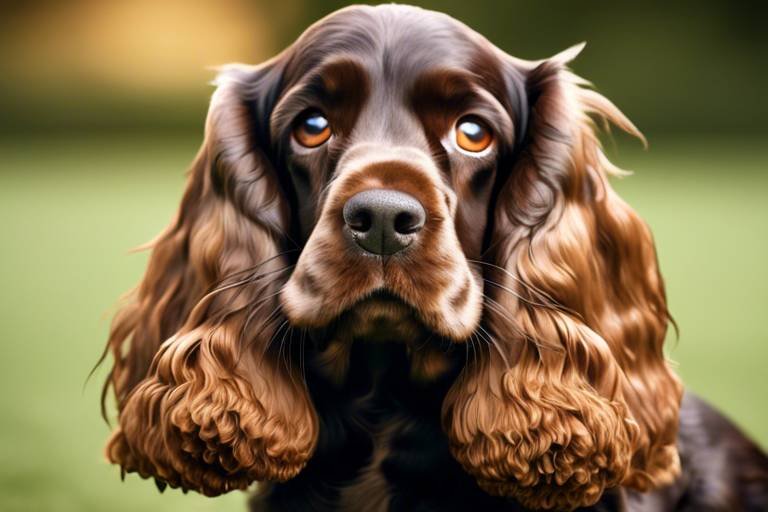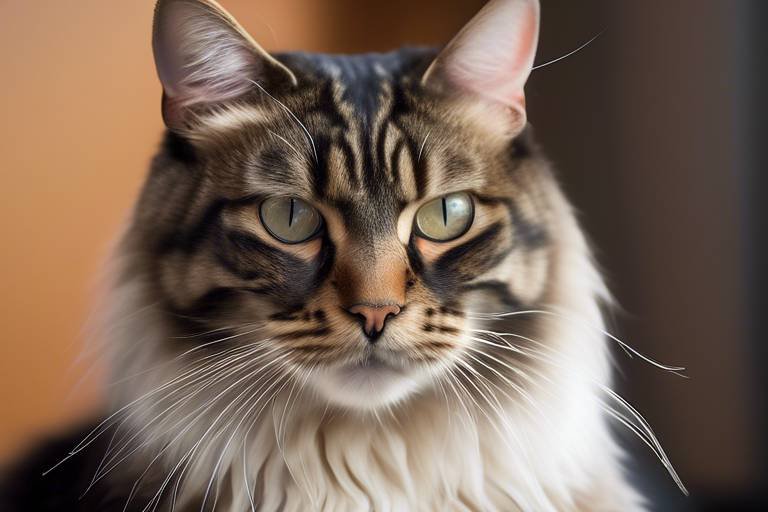Understanding the Differences Between Cat Breeds - Persian vs. Maine Coon
When it comes to choosing a feline friend, the world of cats is as diverse as it is delightful. Among the many breeds available, Persian and Maine Coon cats stand out due to their unique characteristics and temperaments. Imagine walking into a room filled with purring balls of fur, each with its own personality and charm. Persian cats, with their luxurious coats and sweet faces, exude a sense of grace and tranquility. In contrast, Maine Coons, the gentle giants of the cat world, bring a playful and sociable energy that can light up any household. This article delves into the distinctive traits of these two beloved breeds, helping potential cat owners make informed decisions about which feline companion might be the perfect fit for their lifestyle.
One of the most noticeable differences between Persian and Maine Coon cats lies in their physical appearance. Persians are renowned for their round faces, short muzzles, and long, flowing fur that gives them an almost regal look. Their coats come in a variety of colors and patterns, but the overall impression is one of elegance and softness. On the other hand, Maine Coons are significantly larger, often weighing between 10 to 25 pounds, and are characterized by their tufted ears, bushy tails, and rugged appearance. Their fur is thick and water-resistant, making them well-suited for colder climates. Here’s a quick comparison of their physical traits:
| Trait | Persian | Maine Coon |
|---|---|---|
| Size | Medium (7-12 lbs) | Large (10-25 lbs) |
| Fur Length | Long | Medium to Long |
| Face Shape | Round | Square |
| Tail | Long and fluffy | Long and bushy |
The temperament of these breeds varies significantly, reflecting their unique histories and purposes. Persian cats are typically calm, affectionate, and enjoy a more laid-back lifestyle. They thrive in peaceful environments and often prefer cuddling up on a soft couch or lounging in a sunbeam. If you’re looking for a serene companion who enjoys gentle interactions, a Persian might just be your ideal match.
Conversely, Maine Coons are known for their playful and social nature. These cats are often described as "dog-like" due to their loyalty and desire to be involved in family activities. They love to engage in interactive play, making them suitable for families with children or other pets. Here’s a snapshot of their personalities:
- Persian: Calm, affectionate, prefers quiet environments.
- Maine Coon: Playful, sociable, loves interaction and activities.
When it comes to activity levels, Maine Coons generally outshine Persians. While Maine Coons are known for their energetic antics and love for climbing and exploring, Persians tend to be more sedentary. This difference is crucial for potential cat owners to consider. If you lead a busy lifestyle and enjoy an active household, a Maine Coon could be the perfect companion. However, if you prefer a more relaxed atmosphere, a Persian might suit you better.
Maine Coons thrive on interaction and play. They are known to engage in games that stimulate their minds and bodies, such as fetch or puzzle toys. Their playful nature makes them ideal companions for active families who enjoy spending time with their pets. Think of them as the clowns of the cat world, always ready to entertain with their antics!
On the flip side, Persians embody a calm demeanor. They enjoy quiet moments and gentle interactions, making them perfect for individuals or families seeking a serene pet experience. Imagine curling up with a soft, purring Persian after a long day—pure bliss!
Both breeds require regular grooming, but their methods and frequency differ. Persians need daily brushing to prevent their luxurious coats from matting, while Maine Coons may require less frequent grooming due to their water-resistant fur. Understanding these grooming needs is essential for maintaining your cat's health and appearance.
Understanding the health issues prevalent in each breed is crucial for any potential cat owner. Persians are prone to specific genetic conditions, particularly related to their facial structure. They often face respiratory issues due to their flat faces, as well as eye problems. Being aware of these conditions can help owners provide better care and preventive measures.
Some common health issues faced by Persians include:
- Respiratory problems
- Eye conditions
- Dental issues
Maine Coons, while generally robust, are susceptible to certain health challenges such as hypertrophic cardiomyopathy (HCM) and hip dysplasia. Regular veterinary check-ups are essential to monitor their health and catch any issues early. Being proactive about your cat's health can significantly enhance their quality of life.
Q: Which breed is better for families with children?
A: Maine Coons are generally more playful and sociable, making them a better fit for families with children.
Q: Do Persians require more grooming than Maine Coons?
A: Yes, Persians need daily grooming due to their long fur, while Maine Coons may require less frequent grooming.
Q: Are both breeds prone to health issues?
A: Yes, both breeds have specific health concerns that potential owners should be aware of.
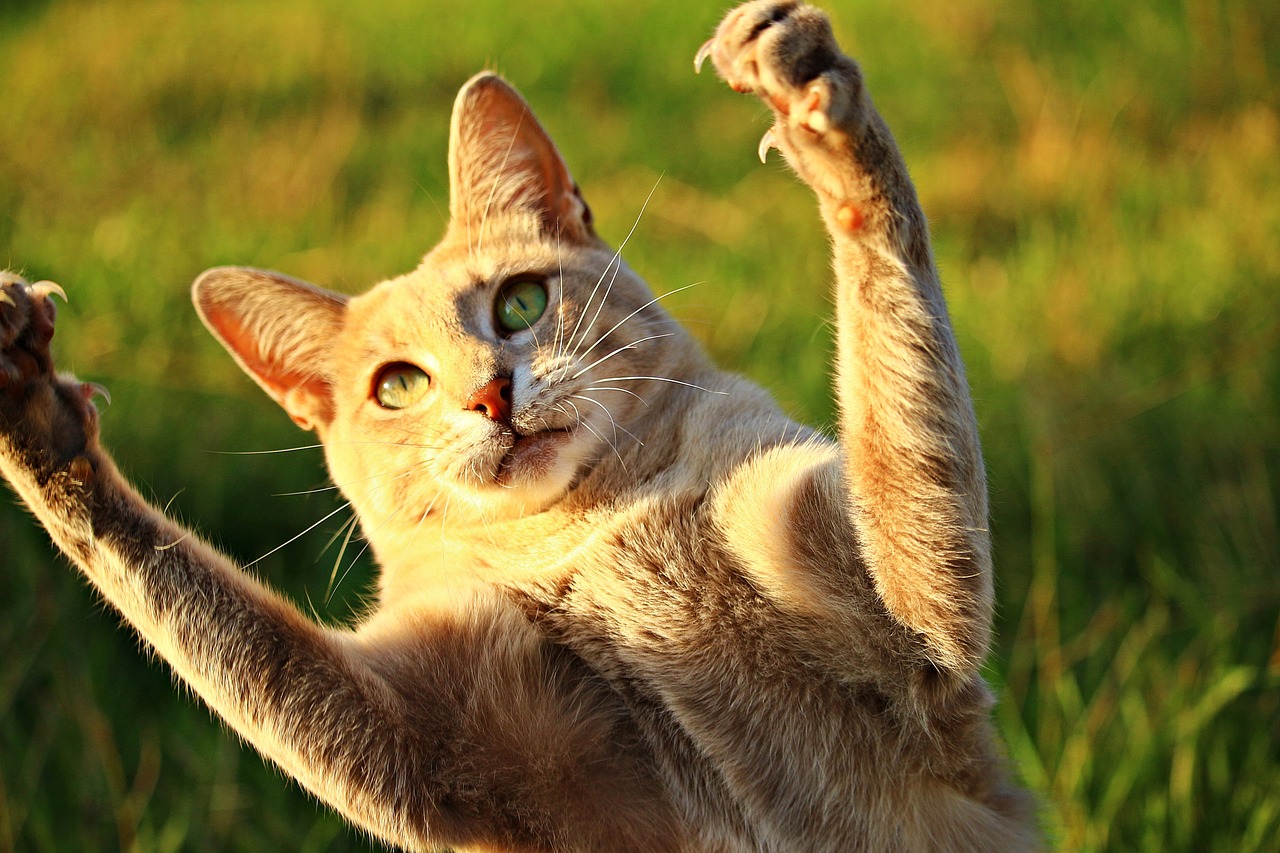
Physical Appearance
When it comes to the of cats, Persian and Maine Coon breeds stand out in remarkably different ways. Imagine the Persian cat as a living piece of art, with its round face and luxurious long fur that seems to flow like silk. Their flat noses and large, expressive eyes give them a distinctive look that many find utterly charming. The coat of a Persian is often a solid color or a combination of hues, and it's not just beautiful; it requires diligent grooming to maintain its stunning appearance.
On the flip side, the Maine Coon is like the gentle giant of the cat world. These cats are significantly larger, often weighing between 10 to 25 pounds, and they can reach impressive lengths, sometimes even over 40 inches from the tip of their nose to the end of their bushy tail. Their tufted ears and bushy tails add to their rugged charm, making them look like they just stepped out of a forest adventure. The Maine Coon's fur is not only long but also water-resistant, which is a fantastic adaptation for a breed that originated in the chilly climates of North America.
To give you a clearer picture of these two breeds, here’s a quick comparison table:
| Feature | Persian | Maine Coon |
|---|---|---|
| Size | Small to Medium | Large |
| Weight | 7-12 pounds | 10-25 pounds |
| Face Shape | Round | Square |
| Fur Length | Long | Medium to Long |
| Ear Shape | Small, rounded | Large, tufted |
| Tail | Short and fluffy | Long and bushy |
In summary, the Persian cat embodies elegance and grace with its refined features, while the Maine Coon showcases a rugged, sturdy appearance that is both impressive and inviting. Understanding these differences can help potential cat owners choose the breed that best fits their aesthetic preferences and lifestyle.
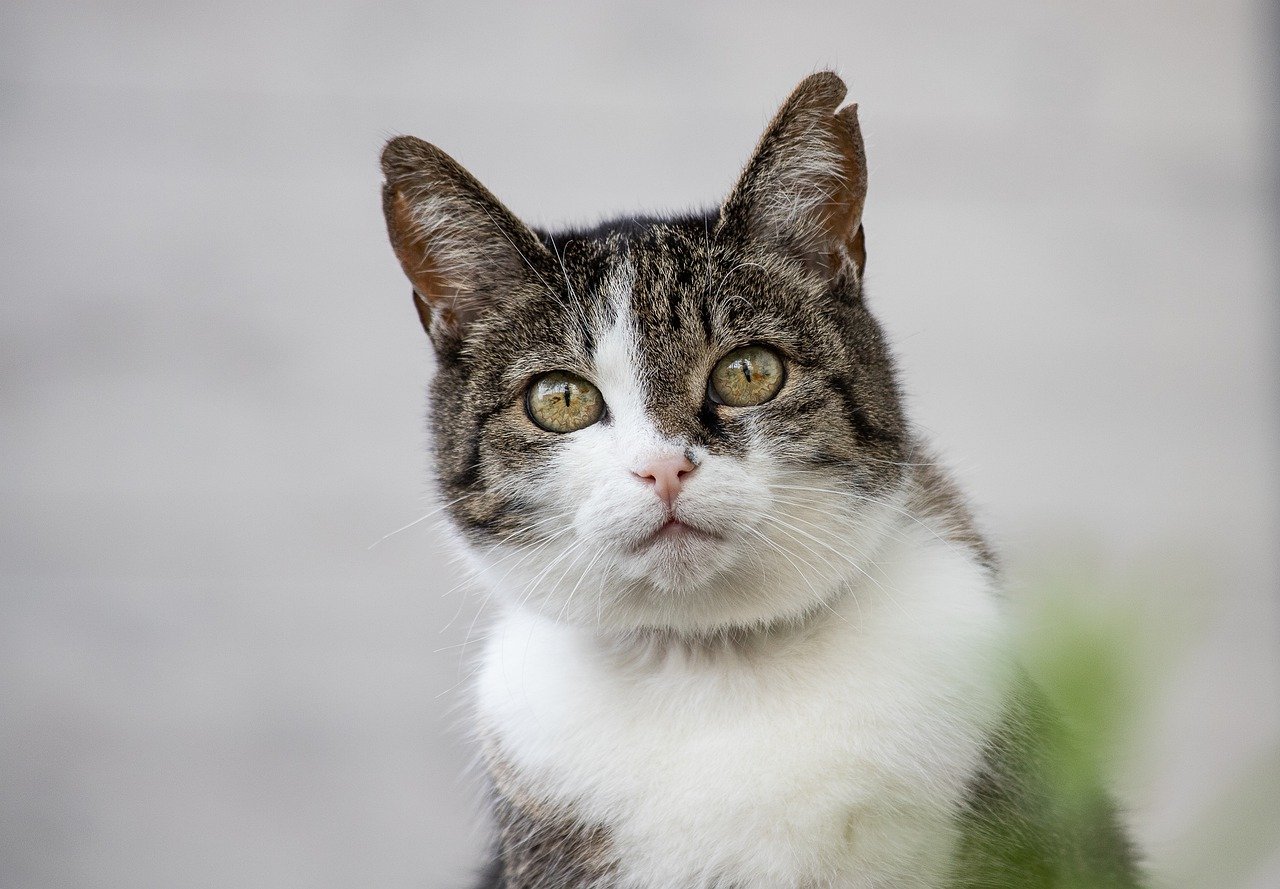
Temperament and Personality
When it comes to choosing a feline companion, temperament and personality play a crucial role. Persian and Maine Coon cats have distinct characteristics that cater to different lifestyles and preferences. Persians are often described as the epitome of calmness and affection. They thrive in serene environments, making them perfect companions for those who enjoy a quieter home life. Imagine curling up on the couch with a fluffy ball of love, purring softly as you read a book. That’s the Persian experience!
On the flip side, Maine Coons are the life of the party! Known for their playful and social nature, these cats are always up for a game or a good cuddle session. They love to explore their surroundings, often following their humans around the house, eager to engage in whatever activity is happening. If you’re looking for a cat that will keep you entertained and engaged, the Maine Coon might just be your perfect match.
Let’s break it down a bit more:
| Characteristic | Persian | Maine Coon |
|---|---|---|
| Activity Level | Low | High |
| Social Interaction | Enjoys gentle interactions | Thrives on social engagement |
| Playfulness | Occasional | Very playful |
| Ideal Environment | Quiet, calm | Active, engaging |
Understanding these differences can significantly impact your choice. If you live in a bustling household with kids and other pets, a Maine Coon might be the best fit, as they are known to be friendly and adaptable. On the other hand, if you prefer a peaceful atmosphere, a Persian cat’s gentle demeanor will be a delightful addition to your home.
Moreover, it’s fascinating how their personalities can also reflect their upbringing and environment. A well-socialized Maine Coon will likely be more outgoing, while a Persian that has been raised in a quiet home may be more reserved. This adaptability can make a significant difference in how these breeds interact with their humans and other pets.
In conclusion, whether you find yourself drawn to the affectionate nature of Persians or the playful spirit of Maine Coons, understanding their temperament and personality traits will help you make an informed decision. After all, bringing a cat into your home is not just about choosing a breed; it’s about finding a furry friend that complements your lifestyle!
Activity Levels
When it comes to activity levels, the Maine Coon and the Persian cat breeds couldn't be more different. If you're considering adding a feline friend to your home, understanding these differences is crucial. Maine Coons are like the playful puppies of the cat world; they thrive on activity and interaction. These cats are known for their love of play, often engaging in spirited games that keep both their minds and bodies stimulated. Imagine a child playing tag in the backyard—this is how a Maine Coon approaches life! They enjoy chasing toys, climbing, and exploring their surroundings, making them ideal companions for families with kids or other pets.
On the other hand, Persians embody a more laid-back lifestyle. They are the ultimate couch potatoes, perfectly content to lounge around and soak up the sun. Picture a cozy afternoon spent curled up with a good book and a warm cup of tea—this is the essence of a Persian's world. While they may enjoy a gentle play session here and there, their preference leans towards a serene environment where they can relax and enjoy quiet companionship. This makes them perfect for individuals or families who appreciate a more tranquil pet experience.
To help you visualize the differences in activity levels between these breeds, here's a quick comparison:
| Feature | Maine Coon | Persian |
|---|---|---|
| Activity Level | High | Low |
| Playfulness | Very playful and interactive | Occasional play, prefers relaxation |
| Social Interaction | Enjoys being around people and other pets | Prefers calm, quiet interactions |
In conclusion, if you're looking for a lively and playful companion, the Maine Coon is your go-to breed. However, if you desire a calm and affectionate friend to share quiet moments with, the Persian cat will be a perfect match. Ultimately, the choice between these two breeds should reflect your lifestyle and what you envision in a feline companion.
- What is the average lifespan of a Maine Coon? Maine Coons typically live between 12 to 15 years, with proper care.
- Do Persians require special grooming? Yes, Persians need daily grooming to prevent matting and maintain their luxurious fur.
- Are Maine Coons good with children? Absolutely! Maine Coons are known for their friendly and playful nature, making them great family pets.
- Can Persians adapt to apartment living? Yes, they can thrive in an apartment setting, especially if it’s a calm environment.
Playfulness in Maine Coons
The Maine Coon is often described as the "gentle giant" of the cat world, and their playful nature is a big part of that charm. Unlike some breeds that may prefer lounging around all day, Maine Coons possess a vibrant energy that makes them delightful companions. Their playfulness isn't just a phase; it's a lifelong trait that can bring joy to both the cat and its human family. Imagine coming home after a long day, only to be greeted by a furry ball of enthusiasm, ready to engage in a game of chase or a playful pounce!
One of the most captivating aspects of Maine Coons is their love for interactive play. They thrive on activities that stimulate their minds and bodies. Whether it's a feather toy dangling from a string or a laser pointer darting across the floor, these cats are quick to engage and showcase their agility. It's not uncommon to see a Maine Coon leap several feet in the air, showcasing their impressive acrobatics. Their playful nature also makes them excellent companions for children, as they often enjoy the hustle and bustle of a lively household.
Moreover, Maine Coons are known for their intelligence, which adds another layer to their playfulness. They can be trained to perform tricks or even play fetch, similar to a dog! This intelligence means that they require mental stimulation, so incorporating puzzle toys or interactive games into their daily routine can help keep them entertained and satisfied. A bored Maine Coon can be mischievous, so keeping their minds engaged is essential.
In addition to toys, Maine Coons are social creatures who enjoy spending time with their human companions. They often initiate playtime by bringing toys to their owners or playfully nudging them to join in the fun. This social aspect of their personality means that Maine Coons can easily become a part of family activities, making every moment spent together a cherished memory. So, if you're considering bringing a Maine Coon into your home, be prepared for an active and engaging companion who will keep you entertained for years to come!
- How much exercise do Maine Coons need?
Maine Coons are active cats and require regular playtime to stay healthy and happy. Aim for at least 30 minutes of interactive play each day. - Can Maine Coons be left alone for long periods?
While Maine Coons are relatively independent, they thrive on social interaction. Long periods alone may lead to boredom and behavioral issues. - What types of toys do Maine Coons prefer?
Maine Coons enjoy a variety of toys, including feather wands, balls, and puzzle toys that challenge their minds. - Are Maine Coons good with children and other pets?
Yes! Their playful and friendly nature makes them great companions for children and other pets.
Calm Nature of Persians
The Persian cat is often regarded as the epitome of tranquility in the feline world. With their luxurious long fur and serene demeanor, these cats are perfect companions for those who appreciate a calm and gentle presence in their homes. Unlike their more boisterous counterparts, the Maine Coons, Persians tend to embody a more relaxed lifestyle, making them ideal for individuals or families seeking a peaceful pet experience.
One of the most appealing aspects of owning a Persian is their affectionate nature. They are known to form strong bonds with their human companions, often following them around the house or curling up in their laps for a cozy nap. This loyalty and desire for companionship mean that Persians thrive in environments where they receive plenty of love and attention. However, it's important to note that they generally prefer quiet settings over chaotic or noisy households. Too much commotion can make them feel anxious, leading to stress and discomfort.
Persians also enjoy a leisurely pace of life. They are not the type of cats that will zoom around the house chasing after toys or climbing to high places. Instead, they tend to be more content lounging in a sunbeam or observing the world from a comfortable perch. This laid-back attitude makes them suitable for various living situations, including apartments and homes with limited space. As a result, they can adapt well to different environments, provided they have a cozy spot to call their own.
When it comes to interaction, Persians appreciate gentle and calm engagement. They thrive on soft petting and quiet conversations, making them excellent companions for those who enjoy a more subdued interaction with their pets. Unlike more energetic breeds, they do not require constant playtime, which can be a significant advantage for busy individuals or families. However, it’s essential to engage them in a way that respects their tranquil nature. For example, simple activities like brushing their fur or offering treats can foster a strong bond without overwhelming them.
In summary, the makes them unique and desirable for many cat lovers. Their gentle disposition, affectionate behavior, and ability to adapt to quieter environments set them apart from more active breeds. If you're looking for a feline friend that embodies serenity and offers companionship without the hustle and bustle, a Persian cat may just be the perfect addition to your home.
- Are Persian cats good for families with children?
Yes, Persian cats can be great for families with children, but it's important to teach children how to interact gently with them to ensure a harmonious relationship.
- How much grooming do Persian cats need?
Persian cats require daily grooming to prevent matting and keep their fur healthy. Regular brushing helps reduce shedding and keeps their coat looking beautiful.
- Do Persian cats get along with other pets?
Persians can get along with other pets, especially if they are introduced slowly and given time to adjust to new companions.
Grooming Requirements
When it comes to grooming, both the Persian and Maine Coon breeds have their unique needs, which can significantly impact your choice as a cat owner. Let's dive into what each breed requires to keep their coats healthy and vibrant. First off, Persians are known for their luxurious, long fur, which, while stunning, can easily become matted if not properly cared for. This breed requires daily brushing to prevent tangles and mats from forming. Think of it like untangling a necklace; if you don't address the knots regularly, they can become a real headache! Additionally, regular bathing is recommended to keep their coat in tip-top shape, especially since they can be prone to oil buildup.
On the other hand, Maine Coons have a different grooming regime. Their fur is water-resistant, which means they don’t require as much maintenance as Persians. A good weekly brushing is usually sufficient to keep their coats looking great. However, during shedding seasons, you might want to increase the frequency to twice a week to manage the extra fur. The Maine Coon's fur is also less prone to matting, making grooming a less daunting task. This breed is often described as the "gentle giant" of the cat world, and their grooming needs reflect that ease.
To summarize the grooming requirements for each breed, here’s a quick comparison table:
| Breed | Grooming Frequency | Special Considerations |
|---|---|---|
| Persian | Daily | Frequent baths, prone to matting |
| Maine Coon | Weekly | Less prone to matting, water-resistant fur |
Ultimately, the choice between a Persian and a Maine Coon may hinge on how much time you’re willing to dedicate to grooming. If you enjoy the ritual of brushing and pampering your pet, a Persian might be the perfect fit for you. However, if you prefer a more laid-back grooming routine, the Maine Coon could be your ideal companion. Understanding these grooming needs will not only help you maintain your cat’s appearance but also contribute to their overall health and happiness.
- How often should I groom my Persian cat? Daily grooming is recommended to prevent matting and keep their coat healthy.
- Do Maine Coons shed a lot? Yes, they do shed, especially during seasonal changes, but their fur is less prone to matting.
- Can I bathe my cat? Yes, both breeds can benefit from occasional baths, but Persians may require them more frequently.
- What tools do I need for grooming? A slicker brush, a comb, and possibly a de-shedding tool for Maine Coons are ideal.
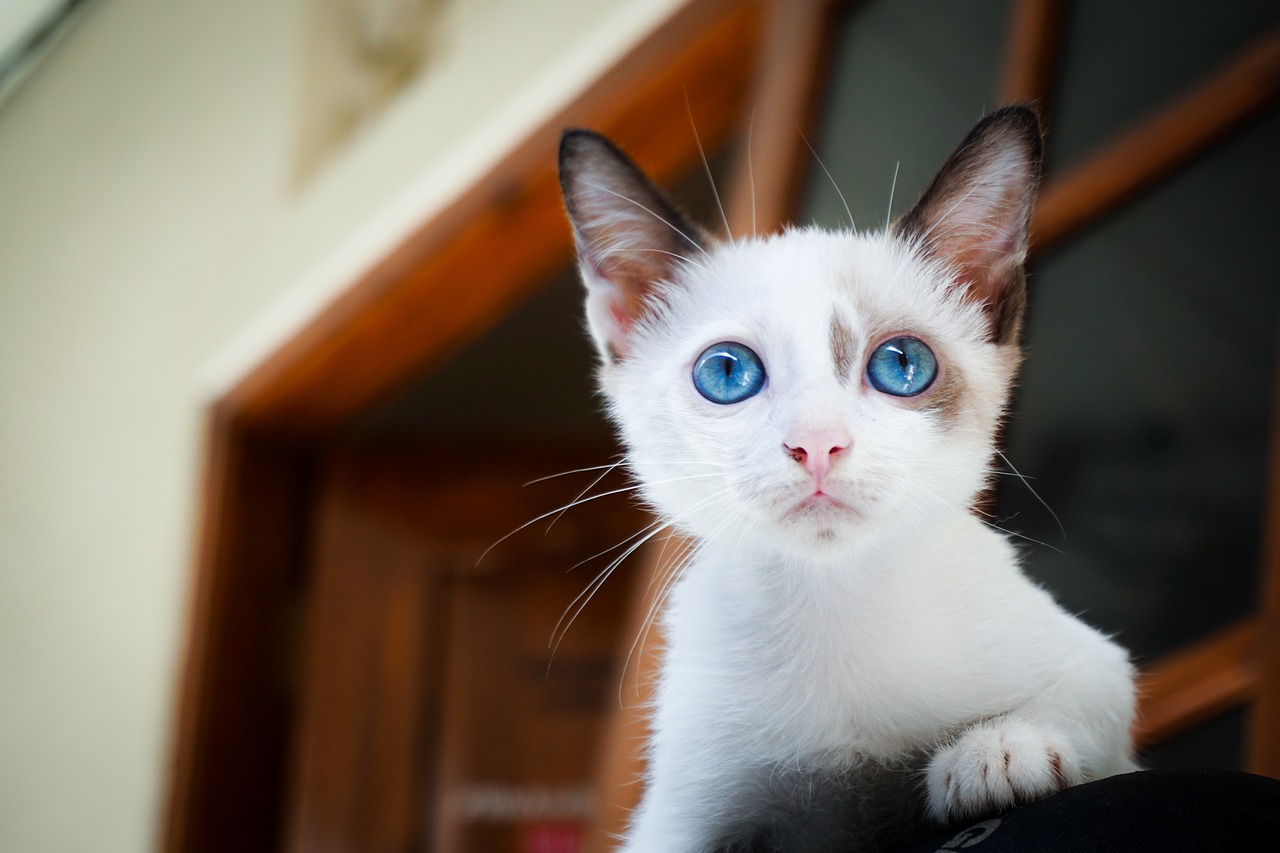
Health Considerations
When it comes to choosing between a Persian and a Maine Coon, understanding their health considerations is crucial. Each breed has its unique set of health challenges that potential owners should be aware of. For instance, Persians are known for their adorable flat faces, but this characteristic comes with its own set of issues. The structure of their skull can lead to respiratory problems, making it essential for owners to monitor their furry friends for any signs of distress. Additionally, eye problems are common in this breed, requiring regular check-ups and potentially special eye care.
On the other hand, Maine Coons might look like gentle giants, but they are not without their health risks. One of the most significant concerns is hypertrophic cardiomyopathy (HCM), a heart condition that can affect their quality of life. Furthermore, these cats are also susceptible to hip dysplasia, a condition that can lead to joint pain and mobility issues. Regular veterinary check-ups are not just recommended; they are essential for catching any health issues early and ensuring a long, happy life for your feline companion.
Here's a quick comparison of the common health issues associated with each breed:
| Breed | Common Health Issues |
|---|---|
| Persian |
|
| Maine Coon |
|
In summary, being aware of these health considerations can not only help you choose the right breed but also prepare you for the responsibilities of pet ownership. Regular vet visits, a balanced diet, and an active lifestyle can go a long way in ensuring your Persian or Maine Coon lives a healthy and fulfilling life.
Q: How often should I take my Persian or Maine Coon to the vet?
A: It's generally recommended to take your cat for a check-up at least once a year, but for breeds like Persians and Maine Coons, more frequent visits may be necessary to monitor their specific health issues.
Q: Are there any special diets for Persians or Maine Coons?
A: Yes, both breeds may benefit from diets tailored to their health needs. Consult your veterinarian for recommendations on the best food options for your cat's specific breed and health status.
Q: Can I prevent health issues in my Persian or Maine Coon?
A: While you can't prevent all health issues, you can minimize risks by providing regular veterinary care, maintaining a healthy diet, and ensuring they get plenty of exercise.
Common Health Issues in Persians
The Persian cat, with its stunning looks and gentle demeanor, is a beloved breed among cat enthusiasts. However, potential owners should be aware of some common health issues that can affect these beautiful felines. One of the most significant concerns is their brachycephalic facial structure, which can lead to various respiratory problems. This unique face shape, while adorable, can cause breathing difficulties, especially in hot weather or during strenuous activity. Owners should be vigilant in monitoring their Persian’s breathing and ensure they are not overexerting themselves.
Another prevalent issue in Persians is eye problems. Due to their large, expressive eyes, they are prone to conditions such as tear duct obstruction and corneal ulcers. Regular check-ups with a veterinarian can help catch these problems early and ensure that your feline friend remains comfortable and healthy. Additionally, Persians are susceptible to kidney disease, which can be a silent but serious issue. Keeping an eye on their drinking habits and maintaining a healthy diet can help mitigate this risk.
Below is a table summarizing some of the common health issues that Persian cats may face:
| Health Issue | Description | Prevention/Care |
|---|---|---|
| Respiratory Problems | Breathing difficulties due to flat face. | Avoid overheating and monitor breathing. |
| Eye Problems | Conditions like tear duct obstruction and corneal ulcers. | Regular vet check-ups and eye cleaning. |
| Kidney Disease | Silent but serious condition affecting older Persians. | Healthy diet and regular vet visits. |
It’s crucial for Persian cat owners to be proactive about their pet’s health. Regular veterinary visits, a balanced diet, and a comfortable living environment can go a long way in ensuring that your Persian remains a happy and healthy companion. By staying informed about these common health issues, you can provide the best possible care for your furry friend.
- What is the average lifespan of a Persian cat?
Persian cats typically live between 12 to 17 years, depending on their overall health and care. - Do Persian cats require special diets?
Yes, a high-quality diet tailored to their specific health needs can help prevent common issues. - How often should I take my Persian cat to the vet?
Regular check-ups are recommended at least once a year, or more frequently if health issues arise. - Can I prevent respiratory issues in my Persian cat?
While you can't completely prevent them, keeping your cat cool and avoiding strenuous activities can help.
Health Concerns for Maine Coons
Maine Coons are known for their impressive size and friendly demeanor, but like all breeds, they come with their own set of health concerns. One of the most significant issues that Maine Coons face is hypertrophic cardiomyopathy (HCM), a condition that causes the heart muscles to thicken. This thickening can lead to heart failure if not monitored and managed properly. It's essential for potential Maine Coon owners to be aware of this condition and to have regular veterinary check-ups to catch any early signs.
Another health concern for Maine Coons is hip dysplasia. This genetic condition affects the hip joint, causing pain and mobility issues. It’s particularly common in larger breeds, making Maine Coons more susceptible. Owners should look for signs of discomfort or difficulty in movement, as early intervention can significantly improve the quality of life for affected cats.
In addition to these conditions, Maine Coons may also suffer from other health issues such as:
- Spinal Muscular Atrophy (SMA) - A genetic disorder that affects the spinal cord, leading to muscle wasting and weakness.
- Dental Problems - Like many cats, Maine Coons can experience dental issues, making regular dental care essential.
- Obesity - Due to their large size, Maine Coons can be prone to obesity, which can lead to further health complications.
To ensure your Maine Coon lives a long and healthy life, it's crucial to provide them with a balanced diet, regular exercise, and routine veterinary care. Understanding their unique health needs not only helps in preventing potential issues but also fosters a deeper bond between you and your feline friend.
1. What is the average lifespan of a Maine Coon?
The average lifespan of a Maine Coon is typically around 12 to 15 years, but with proper care, some can live even longer.
2. How can I prevent health issues in my Maine Coon?
Regular veterinary check-ups, a balanced diet, and sufficient exercise can help prevent many health issues associated with Maine Coons.
3. Are Maine Coons prone to any specific diseases?
Yes, Maine Coons are particularly prone to hypertrophic cardiomyopathy (HCM) and hip dysplasia, among other health concerns.
4. What should I do if I notice signs of illness in my Maine Coon?
If you notice any signs of illness, such as lethargy, difficulty breathing, or changes in appetite, it’s crucial to consult your veterinarian as soon as possible.
Frequently Asked Questions
- What are the main differences in appearance between Persian and Maine Coon cats?
Persian cats are easily recognized by their round faces, short muzzles, and long, luxurious fur that requires regular grooming. On the other hand, Maine Coons are larger, with a rugged appearance featuring tufted ears, bushy tails, and a muscular build. Their fur is also long but water-resistant, allowing them to thrive in various climates.
- How do the temperaments of Persians and Maine Coons differ?
Persians are known for their calm and affectionate nature, often enjoying quiet moments and gentle interactions. In contrast, Maine Coons are playful and social, thriving on interaction and often engaging in games. This makes them more suitable for active families or households with children.
- What are the grooming needs for these two breeds?
Persian cats require daily brushing to prevent their long fur from matting and to keep it looking its best. Maine Coons, while still needing regular grooming, can often get by with less frequent brushing due to their water-resistant fur, which tends to mat less easily.
- What health issues are common in Persians?
Persians are prone to specific health conditions, particularly respiratory issues due to their flat faces, as well as potential eye problems. Being aware of these conditions can help owners take preventive measures and seek veterinary care when necessary.
- What health concerns should Maine Coon owners be aware of?
Maine Coons are susceptible to hypertrophic cardiomyopathy (HCM) and hip dysplasia, which can affect their quality of life. Regular veterinary check-ups are crucial for early detection and management of these health issues.
- Which breed is better for families with children?
Maine Coons are often considered better for families with children due to their playful and social nature. They enjoy interactive play and are generally more tolerant of the hustle and bustle of a busy household, while Persians may prefer a quieter environment.
- Can both breeds adapt to apartment living?
Yes, both breeds can adapt to apartment living, but their needs differ. Persians are more suited to a calm, quiet space, while Maine Coons require more playtime and interaction to stay happy and healthy. Ensuring that you can meet their activity needs is essential for both breeds in an apartment setting.

